‘The end days of the world’: Meet Kim Jong-il’s propaganda poet, Jang Jin-sung
A NORTH Korean poet laureate, who fled the country in 2004, has lifted the lid on the regime’s “Corpse Division” in a startling new book.
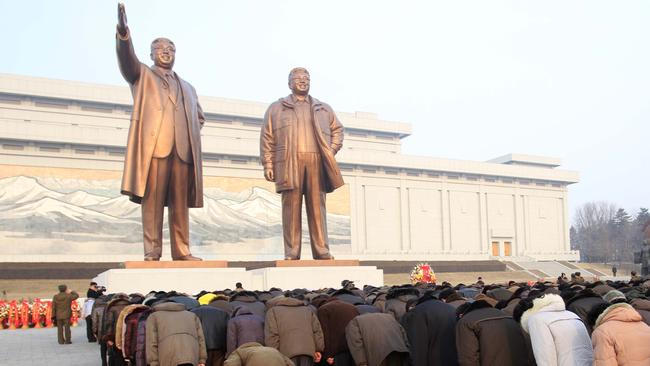
JANG Jin-sung, a North Korean poet laureate and an employee of the country’s United Front Department, the government agency responsible for “inter-Korean espionage, policy making and diplomacy,” was walking through Dongdaewon, the poorest area of Pyongyang. It was 1999, five years into the country’s harsh descent into famine and poverty.
As he entered a packed outdoor market, he was stopped by a gathering crowd. In the centre stood an adult woman and a girl of about seven. A piece of paper hung from the girl’s neck. It read, “I sell my daughter for 100 won.”
At the time, 100 won equalled about 10 cents in US dollars.
Onlookers cursed the mother. The daughter cried to the crowd that her father had died of starvation. Finally, an army lieutenant — who, given his position, was still receiving food rations — agreed to take the girl, and paid the mother.
The mum broke down in violent sobs, screaming “Forgive me! Forgive me!” to the girl as she jammed pieces of bread in her mouth, the last thing she would ever be able to give her daughter.
“Looking at the mother and daughter in that place,” Jang writes, “I felt sure that we were living in the end days of the world.”
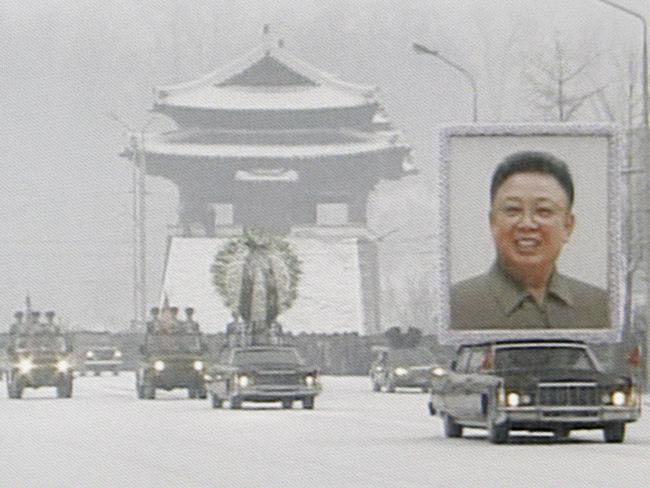
‘The Corpse Division’
Jang’s new memoir, Dear Leader, is a remarkable story of struggle and survival, the tale of his desperate flight from North Korea in 2004.
Given Jang’s unusual position of privilege, the book also presents a rare look inside the lives of the North Korean people and its leaders.
The average North Korean citizen received monthly, pre-measured food rations from the state until 1994, when the collapsed economy left people to fend for themselves. (Those in high levels of government and the military still received rations.)
Death from starvation grew so common that it led to the founding of the ominously but accurately named Corpse Division.
Jang first saw them when, in a park, he noticed “a swarm of homeless people who looked to be either dead or dying. There were also men hovering over the bodies like flies, at times poking the inert figures with sticks.”
When he asked who they were, a friend replied, “They’re from the Corpse Division. They get rid of the corpses. All the other provinces [except Pyongyang] dispatch them to the main park near the station. All sorts of people move through the station, so they come here to beg, until they die.”
Jang saw the division in action.
“The Corpse Division had a loaded rickshaw, on top of which some empty sacks were laid,” he writes. “Six bare and skeletal feet poked out from beneath these in oddly assorted directions. For the first split second, I did not understand what I was seeing, but as soon as I realised these empty sacks were human bodies, I grew nauseous.”
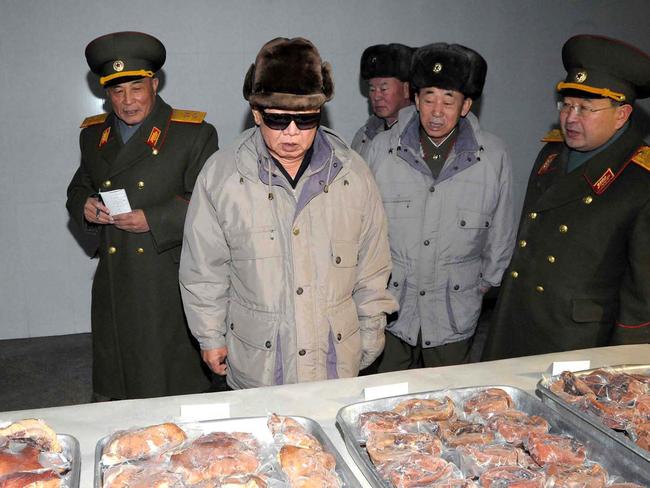
Water was scarce as well. The lower and middle classes “frequented the boiler rooms at foreign embassies, restaurants, or central state institutions. If you paid a bribe, the staff would allow you to have some of the hot water from the overflow pipe.”
Despite the desperation, woe to the North Korean who stole food.
As Jang spoke to his friend at their hometown marketplace, a siren went off. People around him began swearing. His friend “looked exasperated” and said, “F***ing hell.”
“There’s going to be a People’s Trial,” said a nearby vendor. “No one can leave the market until it’s over.”
These executions, Jang learned, took place weekly.
“Sure enough, soldiers rushed in from all directions to surround the square, herding us into the centre with the butts of their rifles,” writes Jang. The prisoner, who had stolen a bag of rice, was brought in wearing everyday clothes, which Jang took as a message to the townspeople that “any of them could be in this position.”
The man, “eyes full of terror” and “blood around his lips,” was brought into the centre as “a military officer read out his judgment,” and a judge declared, “Death by firing squad!”
After this less-than-five-minute “trial,” a soldier shoved “a V-shaped spring” into the man’s mouth to “prevent him from speaking intelligibly,” so that he “could not utter rebellious sentiments” just before he was shot dead in front of the day’s shoppers.
Meeting the dictator
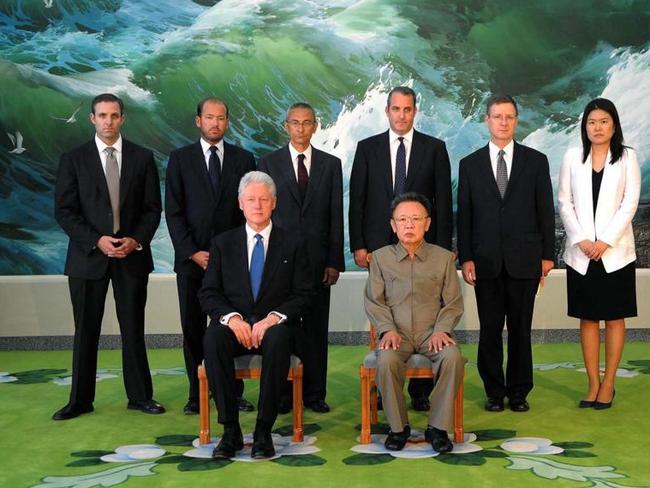
Already a member of the UFD, Jang was declared one of the “Admitted” — a special status proclaiming one a Kim Jong-il insider, with privileges including immunity from investigation and prosecution (except for treason) — in 1999 after writing a poem called “Spring Rests on the Gun Barrel of the Lord.”
The 28-year-old was brought to meet the Dear Leader after being summoned by the Guards Command, the unit “responsible for the protection of Kim’s household. It comprises one hundred thousand infantry, seamen and pilots.”
When Jang first saw Dear Leader, he felt “let down,” as Kim was “an old man who looks nothing like the familiar image of the People’s Leader.”
The shock continued when he noticed that Kim had removed his shoes.
“Even the General suffers the curse of sore feet!” he writes. “I had always thought him divine, not even needing to use the toilet. That’s what we were taught in school.”
“You, boy! Are you the one who wrote that poem about the gun barrel?” Kim said.
“Yes, General!” Jang yelled in his carefully prepared response. “I am honoured to be in your presence!”
“He smirks as he approaches me,” writes Jang.
“Someone wrote it for you, isn’t that right?” Kim says. “Don’t even think about lying to me. I’ll have you killed.”
“As I begin to panic,” writes Jang, “the Dear Leader bursts into hearty laughter and punches me on the shoulder. ‘It’s a compliment, you silly fool. You’ve set the standard for the whole Songun era.’” (Songun is North Korea’s “military first” policy.)
Later, Kim pours Jang a glass of wine. This is a notable North Korean honour, and anyone fortunate enough to experience it then prominently displayed the wine glass on a mantel in their home.
Jang notes, though, that the “wine” Kim drinks is not wine as we know it, but rather an 80-proof liquor “developed by the Foundational Sciences Institute, the academic body devoted to the study of the Dear Leader’s health. Three thousand researchers work there, planning and preparing medicines and dishes specifically designed to extend Kim Jong-il’s longevity.”
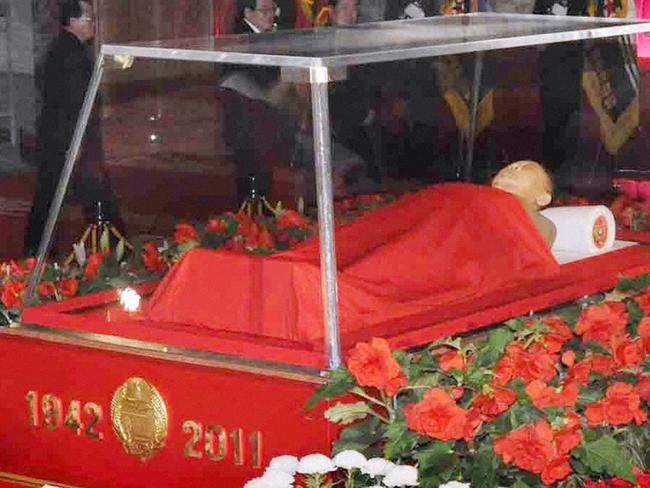
Forbidden knowledge
Working in the UFD, part of Jang’s job was to write poetry praising Kim, which was then ascribed to prominent South Korean poets. These were then presented to North Koreans via state-run media, to show them how beloved the Kims were to the outside world.
To pull this off, Jang was allowed access to South Korean newspapers, to help him affect a South Korean writing voice.
Reading these papers, though, along with other privileged communications, alerted him to the breadth of Kim Jong-il’s lies, including about how he came to power.
While the world believed that Kim Jong-il was anointed his father’s successor, internal documents showed that the younger Kim had wrestled power from his dad, the country’s godhead and Supreme Leader, Kim Il-sung.
Kim Jong-il, as the eldest son, should have inherited the leadership position. But factions created after Kim il-sung’s second marriage led to his younger son, Kim Pyong-il, being regarded as his successor by the nation’s elite. After college, Kim Jong-il was given a job in the Propaganda and Agitation Department, a low-level position that would not have been given to the next in line.
But Kim Jong-il rose up through, and consolidated his power within, the nation’s ruling Workers’ Party. He brought the government’s many factions under the control of the party’s Organization and Guidance Department (OGD), by then his base of power. In time, “the party had replaced all the functions of government, which had become no more than a hollow shell.”
As Kim Jong-il quietly substituted all of his father’s men with his own, Kim Il-sung didn’t even notice, as “he saw only the cultification of himself, as did the outside world.”
By 1980, writes Jang, Kim Jong-il, then the OGD party secretary, had effectively replaced his father as the ruler of the nation, with neither his father nor the outside world becoming any the wiser.
The escape
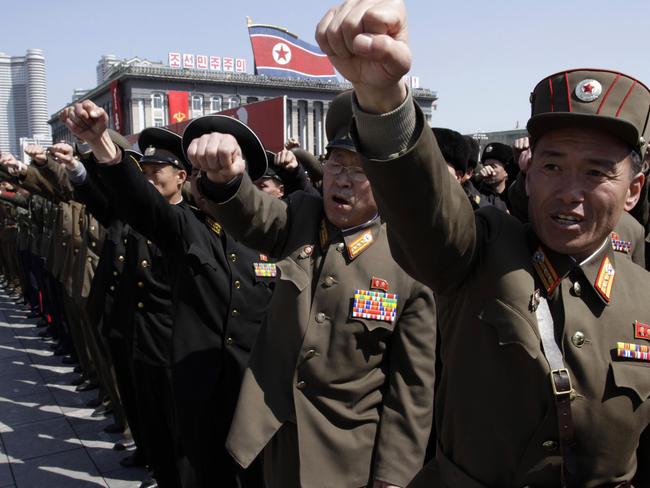
Jung’s time in the UFD also gave him a glimpse of how Kim Jong-il viewed other countries, including ours.
“The United States negotiates as a matter of diplomacy, to seek common ground on an issue; but when North Korea comes to the table, it’s a counterintelligence operation,” Jung explains. “North Korea uses dialogue as a tool of deception rather than of negotiation, with the objective being the maintenance of misplaced trust in the other party.”
Kim Jong-il “formally set these three principles as a basis for diplomatic engagement. ‘The United States will buy any lie, as long as it is logically presented’; ‘Japan is susceptible to emotional manipulation’; and ‘South Korea can be ignored or blackmailed’.”
By 2004, Jang had grown disillusioned with the Kim regime. At one point, he removed a South Korean newspaper from work — a crime punishable by death — and lent it to a friend with similar feelings.
When the friend lost it after falling asleep on a train, the two became marked men and knew immediately they had to flee the country.
After a harrowing, 35-day journey through China, Jang defected to South Korea, working for several years in the country’s intelligence service before returning to writing full-time. He currently lives there with his South Korean wife and new baby boy, noting that his son is “a unified Korean child.”
He lives surrounded by bodyguards, as the North Korean government regularly threatens his life, even publicly declaring last year that it would “remove my existence from this universe.” (Jang Jin-sung is a pen name.)
While he is thrilled to be living a life of freedom, purging the repressive society he grew up in from his mind has been no easy task.
“Like many others, I had years of nightmares after settling in South Korea,” he writes. “At night, our fears take hold of us, as we are returned to the oppressive surveillance, or find ourselves arrested by secret police and hauled away to a prison camp ... We say among ourselves that only when our nightly dreams are set in the safety of our new country, have we truly made it out of North Korea.”
This article originally appeared in The New York Post.



